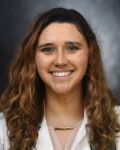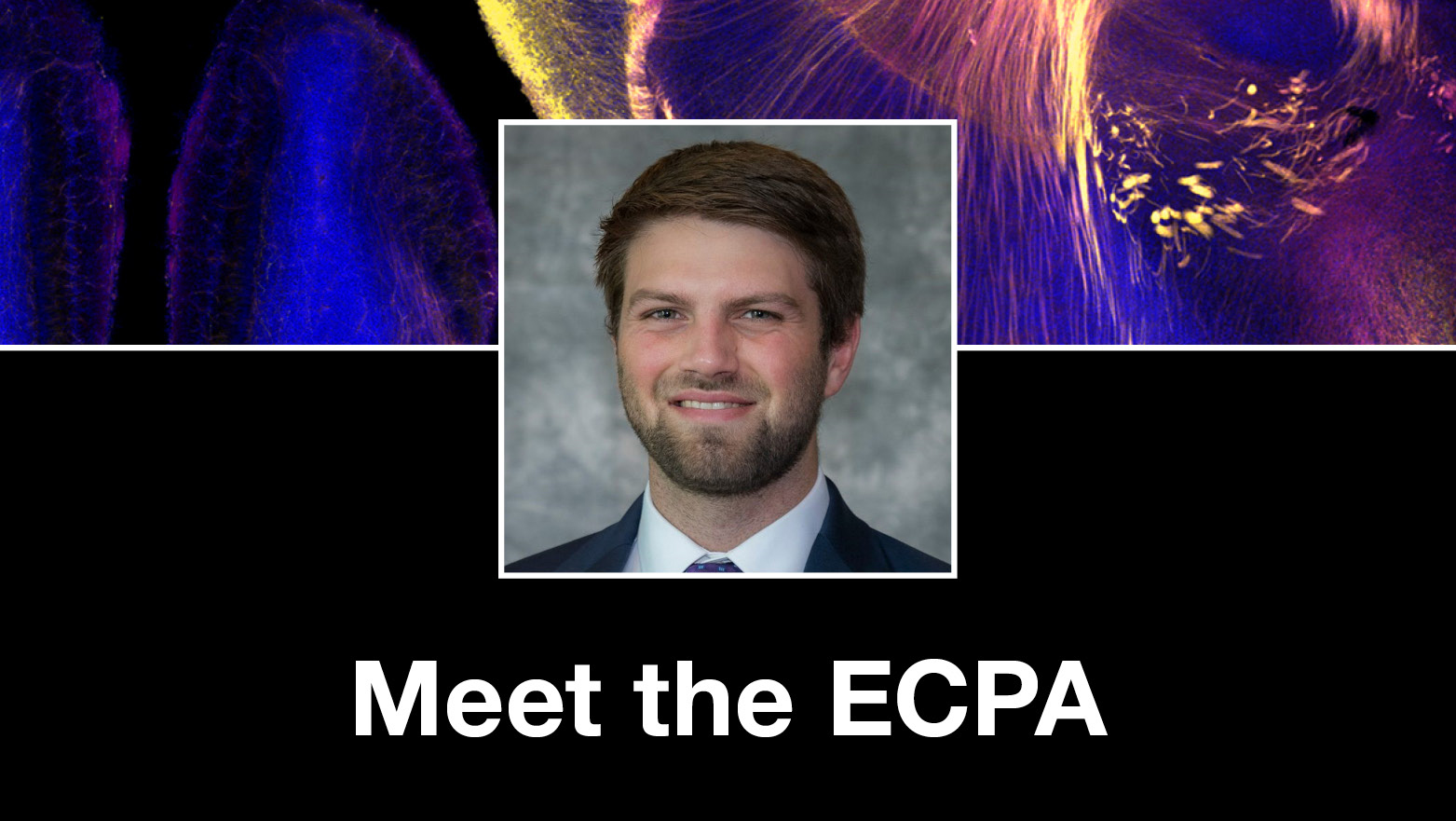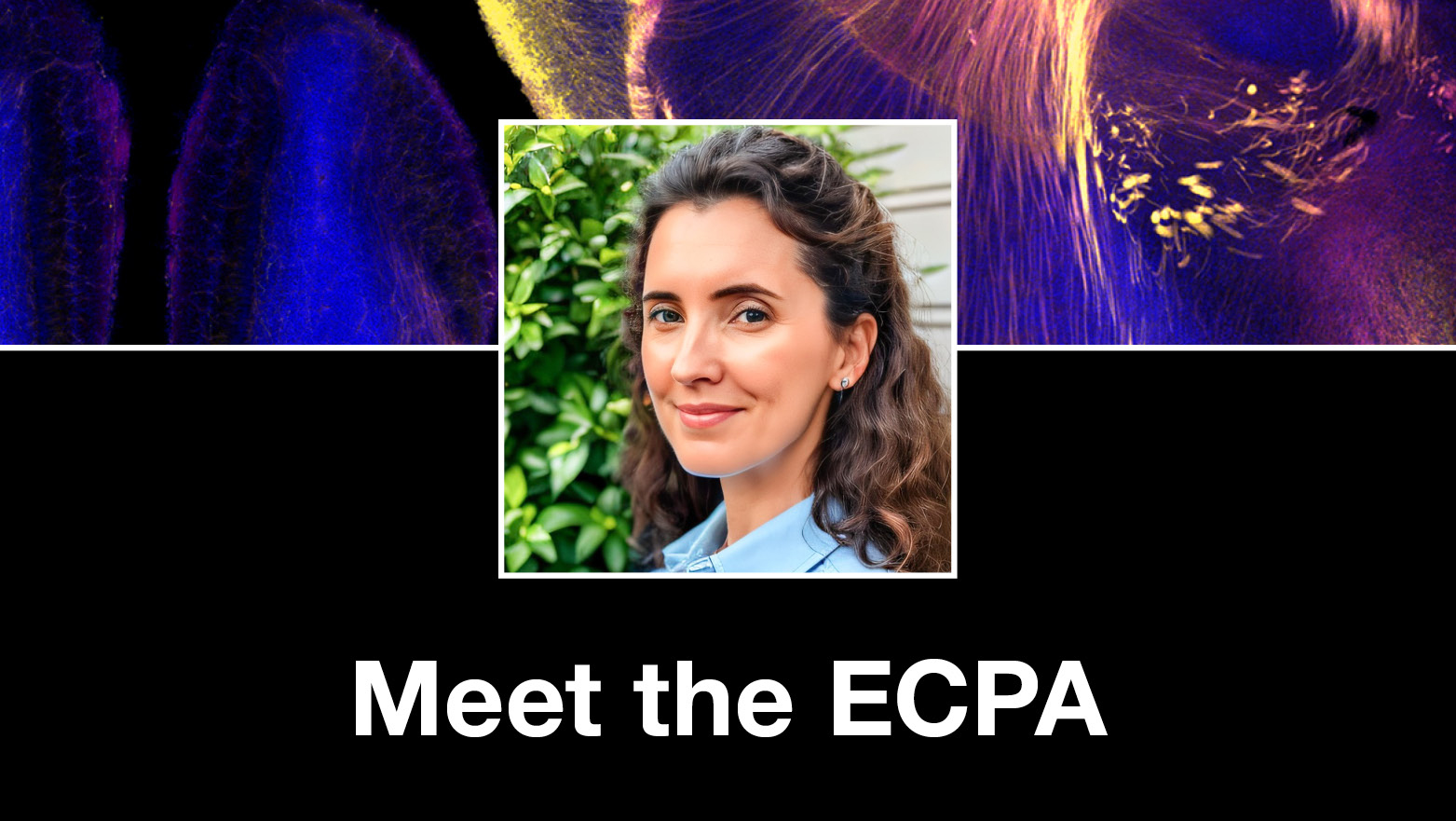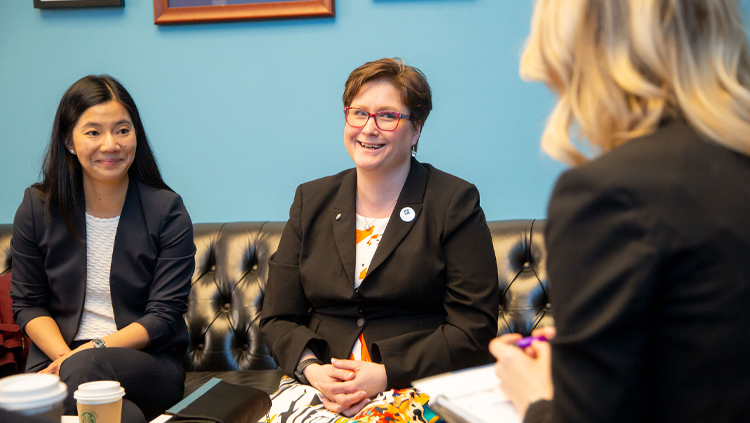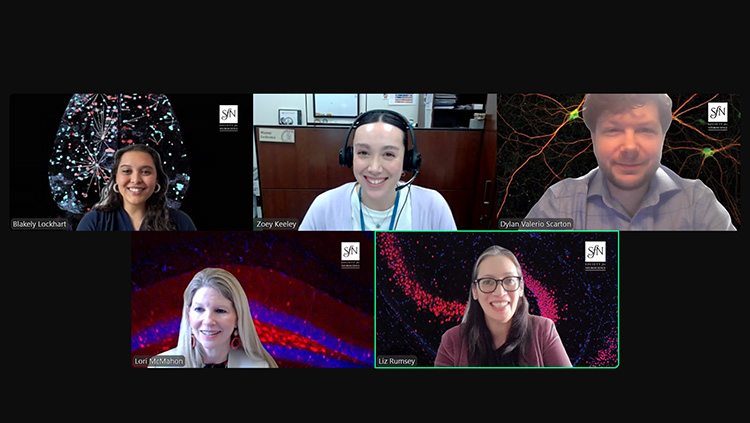Learn about India Pursell, a 2024 Early Career Policy Ambassador and graduate student, as she details her advocacy journey and her passion for promoting early involved in STEM for young girls.
Describe your journey in neuroscience and current research.
My journey in neuroscience has been deeply influenced by personal experiences within my own family. Growing up in a household where three generations lived under one roof, I witnessed firsthand the devastating impact of Alzheimer's disease (AD) on my grandfather. He was diagnosed with early-onset AD at the age of 57, and as his condition progressed, my family and I moved into my grandparents' home to provide care and support.
The experience of watching my grandfather's decline, seeing his personality shift, and witnessing the gradual loss of his memory profoundly affected me. It sparked a deep curiosity about the brain's natural ability to cope, adapt, and heal in the face of challenges. This curiosity led me to develop an interest in neuroscience and regenerative medicine from a young age.
Motivated by a desire to understand the underlying mechanisms of my grandfather's condition, I embarked on a journey towards a career in biomedical research. Although neuroscience wasn't part of my educational curriculum initially, I seized the opportunity to immerse myself in the field when I secured a laboratory technician position at Tulane University after graduating. I had the privilege of taking classes as a staff member. This experience provided me with the foundational knowledge and practical skills necessary to prepare for graduate school in neuroscience.
My current research in Elizabeth Engler-Chiurazzi’s Lab focuses on AD. My research specifically investigates the role of microRNAs, particularly miR-34a, in AD-related processes. MicroRNAs have emerged as significant contributors to neuroinflammation and cognitive function, and understanding their impact on microglia function, holds promise for potential therapeutic interventions.
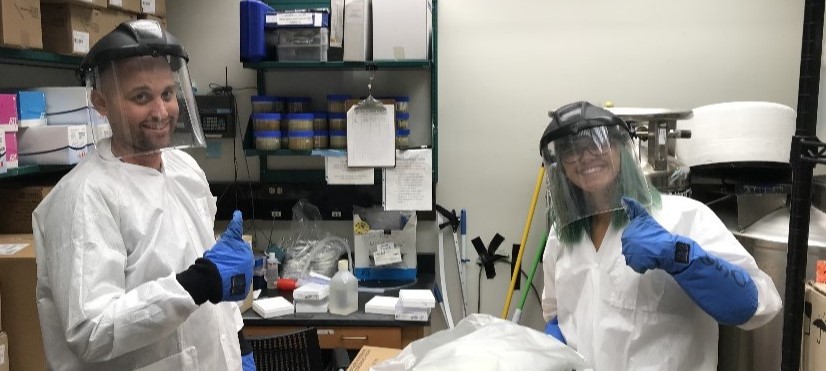
Why are you interested in science policy and advocacy?
I'm deeply passionate about science, mental health, and outreach, and I have a strong desire to explore how science can be leveraged to positively impact society. I recognize the importance of understanding science policy and advocacy to effectively advocate for my community. I am particularly interested in learning about the influence of federal science policy on local and state-level funding, education, and other aspects of community life. I believe that this program will equip me with invaluable insights and skills to effectively communicate with my local communities and address misinformation and distrust surrounding scientific issues. I am passionate about advocating for better K-12 education, particularly for underrepresented populations and encouraging girls to pursue STEM fields. Expanding STEM opportunities for lower socioeconomic status communities can help bridge the equity gap and provide more diverse perspectives in the scientific community. Additionally, promoting girls' interest and participation in STEM from an early age is crucial for fostering gender equality and ensuring a diverse and inclusive workforce in the future. I aim to advocate for policies and initiatives that support these goals and create a more equitable and accessible STEM education system for all.
What does being an ECPA mean to you? Can you describe your two advocacy-related projects you proposed as part of the program?
Being selected as an ECPA is a humbling honor that resonates deeply with me. It represents a unique opportunity to authentically engage with my colleagues and community, fostering connections and driving positive change within my home community.
In my proposed advocacy projects, my goal is to make a genuine impact by enhancing communication and outreach efforts. The idea of a monthly newsletter will create a space for open dialogue and collaboration among colleagues, fostering a sense of community and shared purpose. By expanding the scope of my blog to encompass the wider New Orleans area, I hope to bridge the gap between science and society, making scientific concepts more accessible and relatable to a broader audience.
I also plan to create comic-style books and coloring books on various neuroscience topics, aiming to engage and educate people of all ages in a fun and accessible way. Additionally, I aim to expand outreach activities through community partnerships with after-school programs and by engaging with science classrooms throughout the community.
To achieve these goals, I plan to leverage the resources available through mentorship programs, professional networks, and community outreach committees. By collaborating with others and embracing inclusivity, I hope to create meaningful connections and inspire positive change. Through these initiatives, I aim to foster a greater appreciation for science and its impact on society, ultimately leading to a more vibrant and engaged community.
Why do you feel it’s important to speak to your federal policymakers on the importance of continued support of federal investment in biomedical research?
Advocating for continued federal investment in biomedical research is imperative for several reasons. Firstly, it directly impacts public health by fostering groundbreaking discoveries and advancements in healthcare, leading to improved outcomes and the development of new treatments. This is particularly crucial given the growing population and the rising prevalence of neurological disorders, highlighting the urgent need for innovative solutions.
Secondly, federal investment in biomedical research fuels economic growth by creating jobs, driving innovation, and stimulating economic activity through the creation of new technologies and therapies. As the demand for healthcare services increases with an aging population, the economic benefits of investing in biomedical research become even more pronounced.
Sustained federal support ensures continuity in research programs, allowing scientists to pursue ambitious projects and explore new frontiers of knowledge. This is essential for addressing complex health challenges and driving scientific progress.
Overall, continued federal investment in biomedical research is essential for advancing scientific progress, enhancing public health, driving economic prosperity, and maintaining leadership in the global scientific community. Additionally, investing in K-12 education for STEM subjects is crucial for nurturing the next generation of scientists and ensuring a skilled workforce capable of tackling future health challenges.
How has being an SfN member benefited you in both your professional career and advocacy journey?
Being a member of SfN has been immensely beneficial to both my professional career and advocacy journey in several ways. SfN provides unparalleled opportunities for professional development and networking. Through conferences, workshops, and online resources, I have been able to connect with fellow neuroscientists, exchange ideas, and stay updated on the latest research and advancements in the field. I also had the opportunity to present my research at Neuroscience 2023 after receiving a travel award which allowed me to convey my research and get feedback on experimental design.
Additionally, SfN offers resources and support for advocacy efforts. As a member, I have access to advocacy training, toolkits, and opportunities to engage with policymakers on issues relevant to neuroscience research and funding. This has empowered me to become a more effective advocate for science and to actively participate in efforts to promote policies that support research and innovation.
SfN fosters a sense of community and belonging among its members. By being part of a diverse and inclusive organization, I have found support and encouragement from peers and mentors alike. This sense of community has been invaluable in navigating the challenges of academia and advocating for change.
What is one fun fact about you that you would like to share? (optional)
One fun fact about me is that I used to be a prolific sleepwalker! It led to some interesting adventures in the middle of the night. On a different note, I've also had the pleasure of baking multiple wedding cakes.

